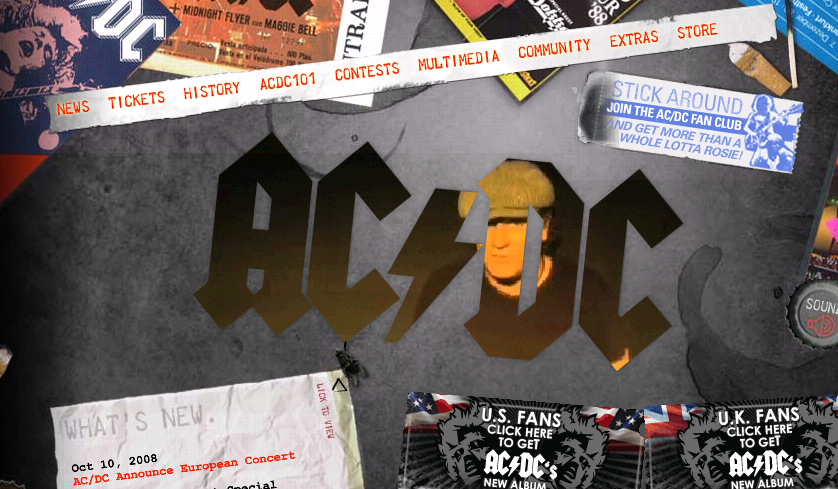AC/DC's iTunes boycott is on Highway to Hell
Band members say iTunes is just about the money and that they want to protect the album format. Hey Angus, what about protecting consumers?

AC/DC, the iconic Australian rock band, has been talking to reporters as part of the promotion of its upcoming album. The group has also used the opportunity to take swipes at Apple.
The band refuses to offer music at iTunes because it isn't interested in selling individual songs. The only places to acquire the album, Black Ice, is at Wal-Mart Stores or on the band's Web site. In an interview with Reuters, lead singer Brian Johnson said the band is trying to protect the album format.
"Maybe I'm just being old-fashioned, but this iTunes, God bless 'em, it's going to kill music if they're not careful," Johnson, 61, told Reuters. "It's a...monster, this thing. It just worries me. And I'm sure they're just doing it all in the interest of making as much...cash as possible. Let's put it this way, it's certainly not for the...love, let's get that out of the way, right away."
Angus Young, who co-founded the band with brother Malcolm, told The New York Times last week: "It's like an artist who does a painting. If he thinks it's a great piece of work, he protects it. It's the same thing: this is our work."
I want to give AC/DC, one of the best-selling rock & roll bands of all time, the benefit of the doubt. I want to believe they really do consider their work art and that the forthcoming album, which debuts October 20, will reflect a legitimate attempt to deliver a hit with every track.
This kind of good-faith effort from the music industry wasn't always guaranteed, remember? I'll get back to that.
First, I couldn't care less if the band doesn't like iTunes. Plenty of people don't. Other artists, such as Kid Rock, choose not to distribute via the country's largest music retailer. It's their music--they can do what they want with it. What offends me about AC/DC's comments is that in the band members' attack on iTunes, they completely ignore history.
Johnson implied that iTunes is all about money and thus this commercialization is hurting music. Let me state the obvious: plenty of people profited off of music long before iTunes was formed, including AC/DC. What, is Wal-Mart donating Black Ice profits to charity?
If iTunes is such a threat to the music industry, you couldn't tell by listening to Doug Morris, CEO of Universal Music Group, the largest of the four top recording companies. Billboard asked him recently who he thought was the smartest person in music. He named Apple CEO Steve Jobs.
"When you look at the whole picture, we make a lot of money through iTunes," Morris said. "We consider (Jobs) a friend...I talk to him about once a month. I like him very much. I have dinner with him occasionally, and he's the kind of guy we'll be talking about 100 years from now. He's a brilliant guy."
As for albums, there's nothing sacred about this format--at least not to consumers. Angus should look around. Hardly anyone in the music business advocates for albums anymore. That's because digital technology has rendered the album obsolete. Consumers are free to buy tracks they like and aren't forced to shell out money for those they don't. Years ago, after the rise of CDs, if a fan liked a song, he or she had little choice but to buy the entire album.
The truth is the album was anti-consumer.
I stopped buying music in the early 1990s after reading a Rolling Stone interview where Kurt Cobain suggested that this wasn't an accident. Nirvana's legendary frontman implied that music labels would take a band's best tracks and scatter them over multiple albums to squeeze more money out of consumers. In the two years I've covered digital music, I've had the opportunity to ask a number of music executives about this.
Not one has ever denied it.
This was obviously a poor way to treat customers, and it's not a stretch to suggest this is why many people felt justified in downloading songs off Napster in the late 1990s, and why so many continue to pirate music to this day.
By requiring Black Ice be sold as an album, AC/DC is trying to cram it down the throats of fans. Why not offer the music on iTunes and be confident that the individual songs will sell themselves?

